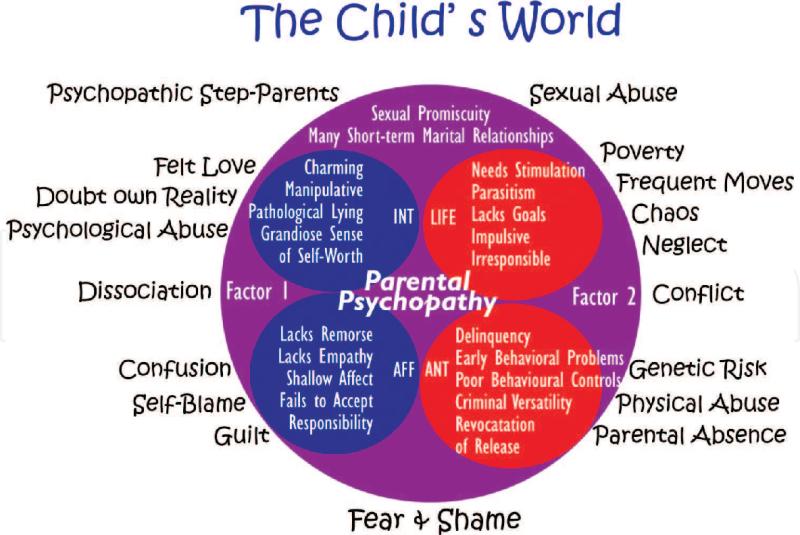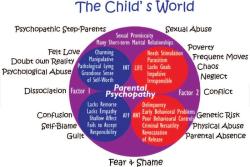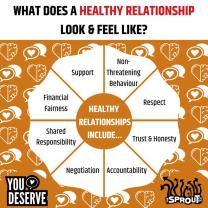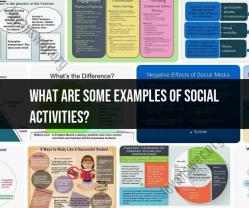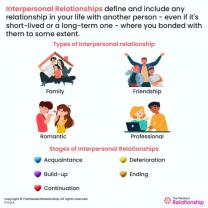What is it like dating a sociopath?
Dating a sociopath can be a challenging and emotionally distressing experience. Sociopathy is a personality disorder characterized by a lack of empathy, manipulation, deceitfulness, and a disregard for the rights of others. It's important to note that not everyone who exhibits problematic behavior is a sociopath, and a professional diagnosis is necessary to determine a personality disorder.
Here are some common red flags and characteristics associated with dating a sociopath:
Charming Persona: Sociopaths are often charming and charismatic. They may use their charm to quickly win people over and create a positive impression.
Lack of Empathy: A key trait of sociopathy is a profound lack of empathy. They may be indifferent to the feelings and needs of others.
Manipulative Behavior: Sociopaths are skilled manipulators. They may manipulate situations, emotions, and people to achieve their own goals.
Superficial Relationships: While sociopaths can appear friendly and sociable, their relationships tend to be shallow and lack genuine emotional connections.
Impulsivity: Sociopaths may engage in impulsive and irresponsible behavior without considering the consequences. This can include reckless actions, substance abuse, or criminal activities.
Lying and Deception: Sociopaths are known for their dishonesty. They may lie frequently, even about insignificant matters, and may have a history of deceitful behavior.
Unreliable and Unaccountable: They may have a pattern of being unreliable, breaking promises, and not taking responsibility for their actions.
Coping strategies when dating or dealing with a sociopath:
Establish Boundaries: Set clear boundaries in the relationship and be firm about what behavior is unacceptable.
Seek Professional Help: If you suspect that you are in a relationship with a sociopath, consider seeking the guidance of a mental health professional who can provide support and advice.
Protect Yourself: Prioritize your own well-being and safety. If the relationship becomes harmful or abusive, consider ending it and seeking support from friends, family, or professionals.
Educate Yourself: Learn more about sociopathy and its traits to better understand the dynamics of the relationship.
Build a Support System: Surround yourself with supportive friends and family who can offer emotional support and perspective.
It's important to remember that a healthy relationship is built on trust, mutual respect, and emotional connection. If you suspect that you are in a relationship with a sociopath or someone with a personality disorder, it's crucial to prioritize your own mental and emotional well-being and seek professional guidance.
Dating a sociopath can be an emotionally and psychologically challenging experience. Recognizing the signs, navigating the relationship, and understanding the potential impact are crucial for prioritizing your well-being.
1. Signs of Dating a Sociopath:
- Charm and charisma: They may be overly charming and captivating at first, making you feel special and drawn in.
- Manipulation and lying: They may frequently lie or exaggerate, often gaslighting you into questioning your own perceptions.
- Lack of empathy and remorse: They may show little to no regard for your feelings or the consequences of their actions.
- Grandiose sense of self-importance: They may inflate their achievements and belittle others, while lacking genuine self-awareness.
- Impulsivity and recklessness: They may engage in risky or irresponsible behavior with disregard for the safety or feelings of others.
- Jealousy and possessiveness: They may express unhealthy jealousy and controlling behavior, seeking to isolate you from your loved ones.
- Superficial charm with shallow connections: They may easily connect with people but struggle to maintain genuine, emotionally intimate relationships.
2. Navigating a Relationship with a Sociopath:
- Prioritize your well-being: Set firm boundaries and distance yourself if necessary. Don't attempt to "fix" or change them.
- Seek professional support: Therapy can help you understand the situation and develop coping mechanisms.
- Maintain a support network: Connect with close friends and family who can offer emotional support and validation.
- Document their behavior: Keep records of their lies, manipulative tactics, and harmful actions, which can be helpful in documenting the situation.
3. Red Flags to Identify a Sociopathic Partner:
- Love bombing: Showering you with intense affection early on to create a strong emotional attachment.
- Moving too fast: Pushing for quick commitment or intimacy before you truly know each other.
- Isolating you: Discouraging you from spending time with friends and family.
- Blaming and projection: Shifting blame for their actions onto you and twisting situations to make you seem like the problem.
- Disrespectful and abusive behavior: This can range from verbal abuse to emotional manipulation and even physical violence.
4. Psychological Impact of Dating a Sociopath:
- Emotional abuse: You may experience anxiety, depression, low self-esteem, and trust issues.
- Gaslighting: You may question your own sanity and reality due to their manipulations.
- Codependency: You may become overly reliant on them to feel secure, despite the toxicity of the relationship.
- Post-traumatic stress disorder (PTSD): In severe cases, the experience can lead to PTSD symptoms.
5. Breaking Free from a Relationship with a Sociopath:
- Plan your exit: Do not attempt a sudden break-up, as it could pose a danger. Seek support from trusted individuals and develop a safe exit strategy.
- Cut off contact: Once you're safe, block them on all communication channels and avoid any contact, even if they try to manipulate you back.
- Focus on healing: Seek professional therapy to process the emotional and psychological impact of the relationship.
- Rebuild your support network: Reconnect with loved ones and nurture healthy relationships.
Remember, prioritizing your safety and well-being is paramount. If you suspect you're in a relationship with a sociopath, seeking professional help and support is crucial to navigate the situation and heal from the experience.
It's important to note that diagnosing someone as a sociopath is a complex matter and should only be done by a qualified mental health professional. This information is intended for educational purposes only and should not substitute for professional advice.
Please prioritize your safety and well-being, and reach out for help if you need it.
